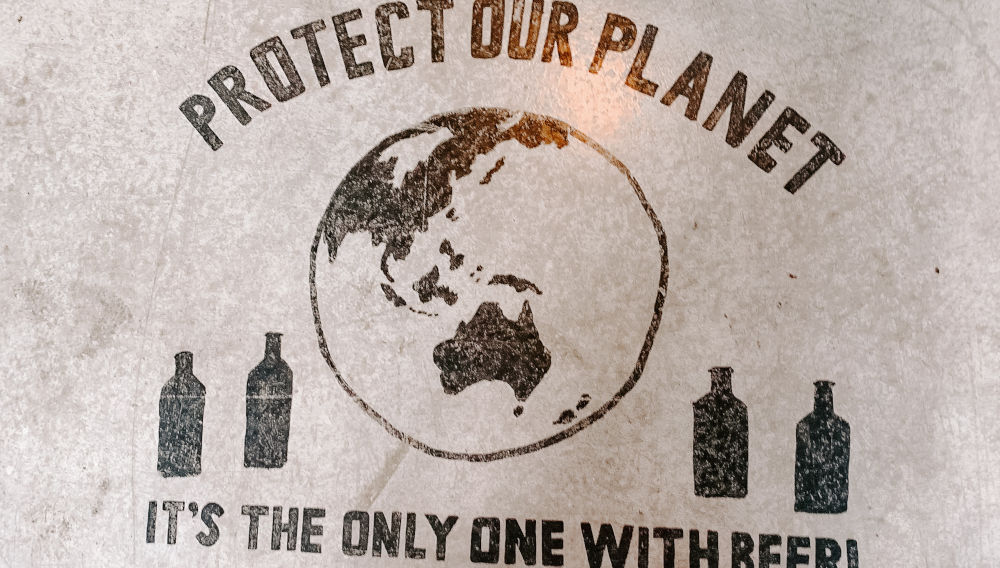Brewers of Europe Forum: Make beer more sustainable, innovative, diverse and responsible
Belgium | It was a big event by any standards. Though conducted virtually over four days, the Brewers of Europe Forum (1–4 June 2021) attracted an unprecedented number of delegates: nearly 2 500 industry members attended the Forum’s 19 sessions, which covered a wide range of topics, from recycling and recovery to innovative brewing techniques, beer styles, marketing and packaging.
Although Europe’s 11 000 brewers are just emerging from the pandemic, which disrupted their businesses and the whole beer value chain, the Forum’s organisers certainly thought that there is no time to waste if brewers want to tackle the industry’s biggest issues: sustainability and rebuilding consumer confidence. That the two are interrelated, the programme underlined. Hence sustainability was examined from various angles, not least as it features among the ESG (environmental, social and governance) goals.
Sustainability is not limited to the environment
Asahi Group President and CEO Atsushi Katsuki stressed that brewers need to cut their carbon footprint if they want their businesses to survive and thrive. Heineken’s CEO, Dolf van den Brink, was even more outspoken. Brewers must take action against climate change and they need to do it transparently and decisively, without any fibbing or greenwashing, he argued.
When it comes to social issues, Asahi’s CEO said that his company will speak about gender and diversity this year. It was left to his European chief, Paolo Lanzarotti, to explain that Asahi plans to raise the representation of women in its breweries, to reflect women’s share of the population by 2030. “The science is clear,” he said. The more diverse a firm, the better the management. Mr Lanzarotti echoed what Jaega Wise, headbrewer of East London’s microbrewery Wild Card, and a media personality in the UK, had said: Diverse companies attract diverse customers, meaning women, men and everybody else.
Brewers’ reputations are at stake
Rick Keen of RepTrak, an insights firm tracking companies’ reputations, emphasised that post-covid, consumers are showing a greater interest in how companies deal with diversity, inclusiveness, and equality. RepTrak’s surveys in Europe showed that while 2019 saw a marked rise in consumer interest in environmental issues, the pandemic accelerated their interest in corporate values and behaviour. “The public increasingly want to know how a company is supporting good causes,” he said. “Consumers may not be familiar with the ESG vocabulary, but its goals are already driving purchasing decisions,” he warned.
Like sustainability, the term “diversity” can have different meanings. It may refer to brewers’ workforces, but equally to their product portfolios. Consumer tastes are changing. This may be a generational thing, but there is no doubt that people want choice. Mr Lanzarotti said: “You cannot tell consumers what to drink!” “Europe’s brewers will need to make up their minds, whether to lean in on hard seltzers, or not.” Despite doubts, Asahi in Europe decided to enter into the segment. Other brewers may be more reluctant, especially once they have taken the IWSR’ analysis to heart.
Hard seltzers are a worry
The IWSR’s Thorsen Hartmann argued that today the RTD market in Europe is dominated by spirits companies, but this is changing as brewers are entering into the fray with their own hard seltzers. Most obviously, brewers are spooked that hard seltzers will compete with beer in traditional beer drinking occasions, driving down beer sales.
Luckily, Europe’s consumers are still relatively unaware of hard seltzers – they have no clue that the term “hard” in the US denotes alcohol – and require descriptors like “alcoholic sparkling water”. As to whether hard seltzers will impact beer in Europe, as they did in the US, is not clear yet.
Beer will prove resilient
In fact, the IWSR believes that beer will remain resilient and Europe’s consumers will not go mad over hard seltzers or RTDs. Most likely, consumers will increasingly go for a non-alcoholic beer if they seek a healthier choice. Per the IWSR, covid’s impact was less dramatic on this segment – it actually grew in 2020 – than on other beer segments.
Europe’s brewers may take heart from these findings. Consumers on this side of the Atlantic will not resemble US consumers any time soon, as concerns habits, tastes, and loyalties.
Brewers need to engage in storytelling
During the concluding panel discussion on the “Future of sustainable beer”, the international beer expert, Sofie Vanrafelghem, actively encouraged Europe’s brewers to come together and write the history of their beer styles, including the country where it originated, to arrive at correct definitions, rather than look to the US Brewers Association’s beer style guidelines. “Europe needs to tell its beer history and the history of its styles more forcefully than it did in the past,” she emphasised.
At the end of the Forum, it was announced that the Brewers of Europe will collaborate with the BBC StoryWorks on a new project – Raising the Bar! – that will showcase some of the most exciting stories from across the beer sector in Europe.
Keywords
international beer market Belgium consumer behaviour Europe The Brewers Forum The Brewers of Europe marketing storytelling conferences
Authors
Ina Verstl
Source
BRAUWELT International 2021

